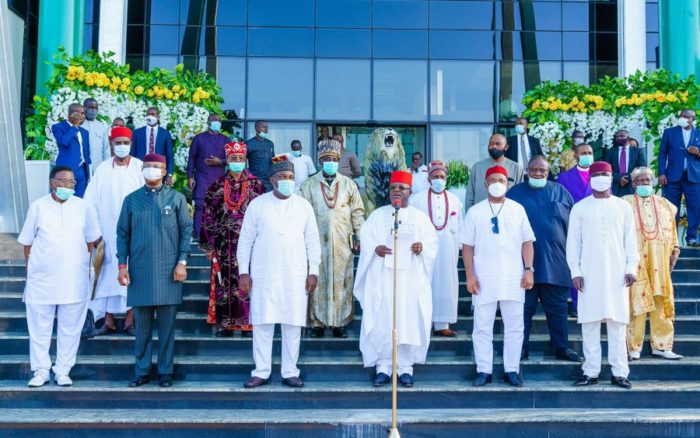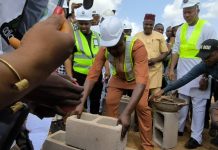State governors from the South-East geo-political zone are to declare May 30 as Biafra Day to commemorate the death of Igbos who lost their lives during the civil war during their next meeting.
Governor David Umahi of Ebonyi State who is the chairman of South-East Governors Forum stated this in a televised broadcast on Tuesday.
This comes a day after the annual sit-at-home order by the Indigenous People Of Biafra (IPOB) was fully complied with across the five states of the Igbo predominantly area.
Mr Umahi said if June 12 and January 15 could be set aside to recognize MKO Abiola, winner of the annulled 1993 presidential election and armed forces day respectively, there was nothing wrong in doing same for those who fought on the part of the defunct Biafra Republic.
“People are beginning to say that even beyond the issue of sitting at home, there is a need to set aside a date to honour our brothers and sisters who died during the civil war and there is nothing wrong with doing that,” the Ebonyi governor said.
“If it comes before the South East governors, we would give it consideration and put conditions and one of them would be that if anyone decides to do otherwise, you must allow the person to exercise his or her rights.
“Children, who didn’t know the reasons for declaring the war were killed and we are saying we should have a public holiday for people like that. We are saying if our leaders bring such proposition to us and speaking for myself, we would grant that day as a public holiday but there must be a proper request for this in one of our meetings. I believe it would even be deliberated upon in our next South East governors’ meeting.
“We have June 12 dedicated to MKO Abiola, we also have a date set aside for our fallen heroes, so, there is absolutely nothing wrong with having a day set aside to mourn our dead but it depends on the motive because such a day is supposed to be a day of reflection.
“The South East leaders would be willing to set aside May 30 every year to honour our dead. The significance of that day, if set aside, is for each and every one of us to reflect and ask if we should have done things differently. Yes, we were being killed and we were being maltreated but maybe there would have been an alternative. What is done is done and the man who led us said there shouldn’t be a second war and that is where we are,” Umahi said.







